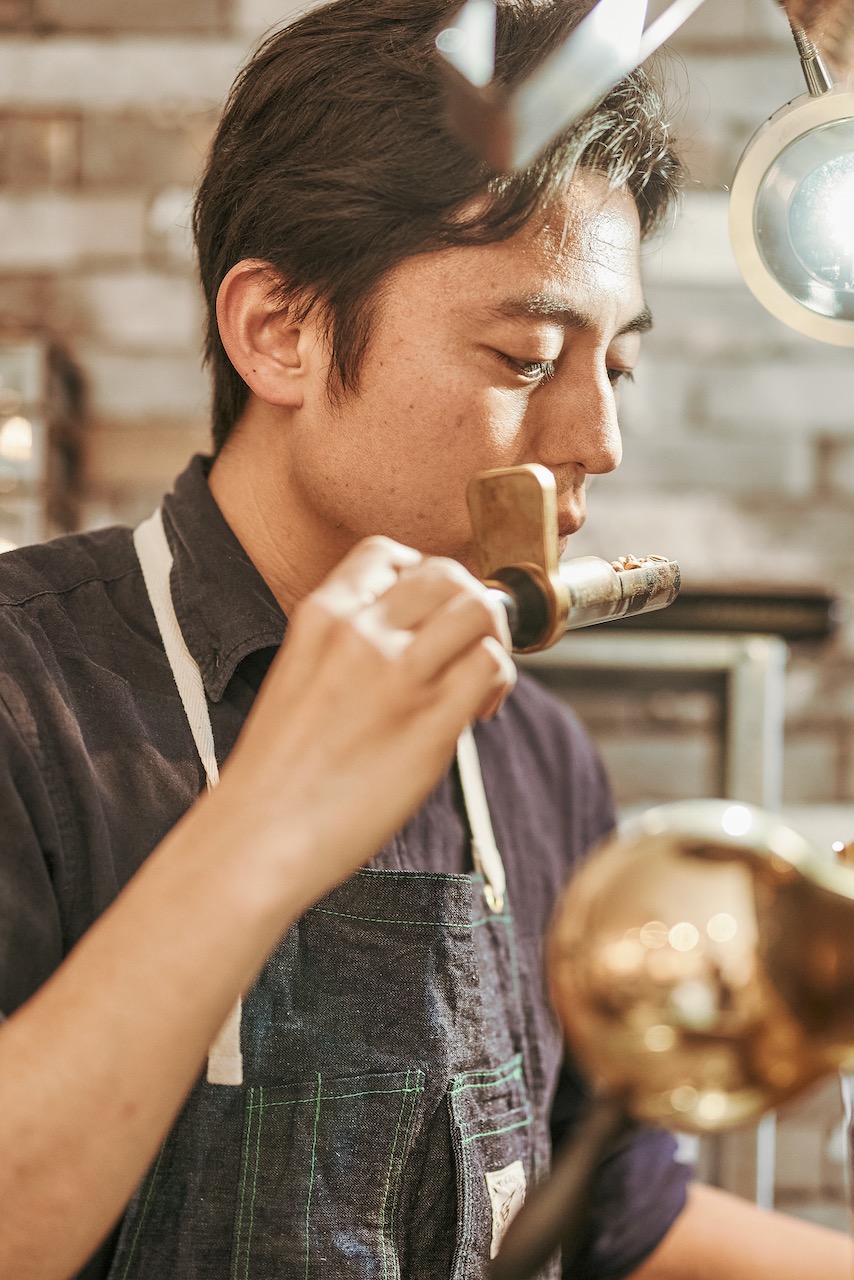

Located in the western Japanese city of Kadoma, Osaka, SUGIHARA COFFEE ROASTER is a brand tirelessly aiming to reach perfection in coffee culture. This independent coffee shop imports green coffee directly from producers and roasts them on-site. The brand also runs a cafe, SUGIHARA COFFEE, and an online store and offers wholesale services, too.
Founder Daisuke Sugihara, a native of Osaka, felt uncomfortable eating in places where he thought the food was good but not the coffee. So he decided to master the art of coffee-making himself. Upon completing seven years of training at HIRO COFFEE, he opened SUGIHARA COFFEE ROASTER in 2019.
Sugihara, who, since then, has managed the store alongside his wife Kana, a pâtissier, has reasons to be keen on direct trade. What prompted Sugihara to look for means to solve the coffee trade problem and realize his dream?
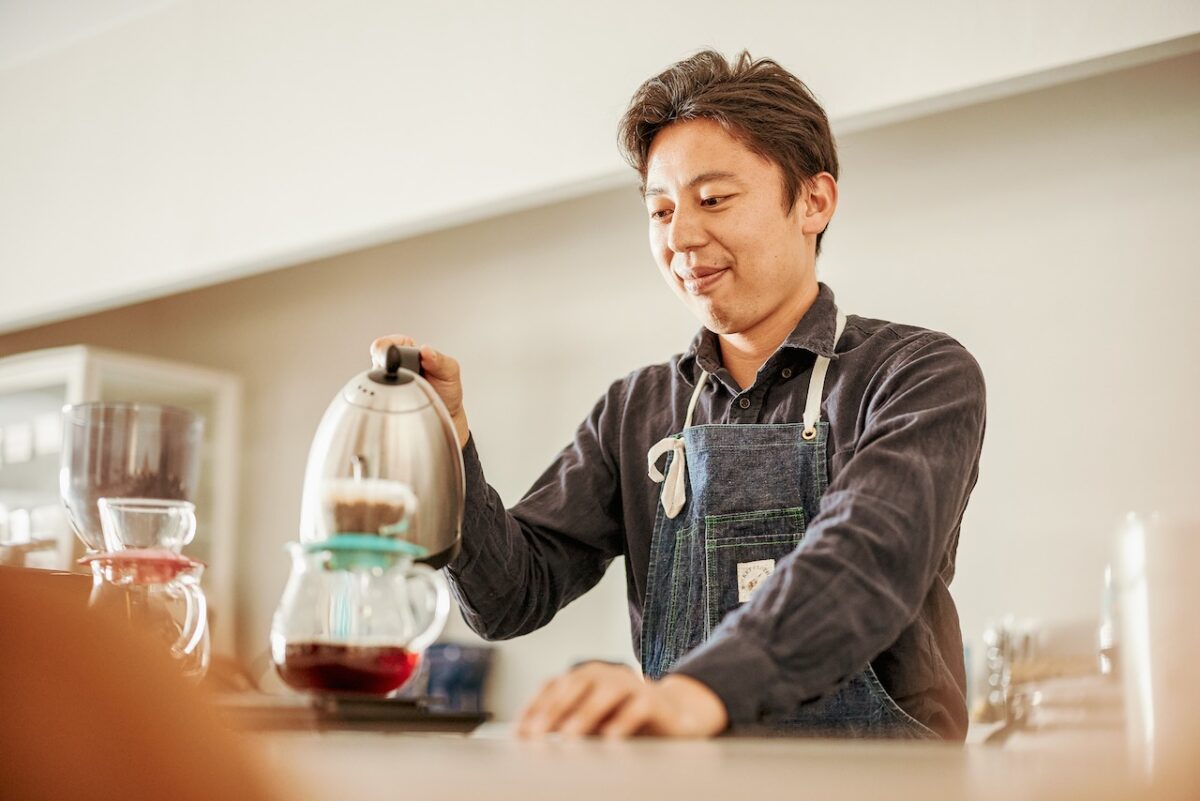
Changing future by ourselves
Sugihara’s intent is clearly summarized on the shop’s webpage: “The real deliciousness of good coffee beans should not depend on someone’s misfortune.”
“It’s thanks to coffee producers that we can casually drink tasty coffee every day. Nevertheless, as I toured coffee farms on my previous job, I realized that the people working there didn’t get reasonable profits out of their trade. They were trapped in poverty. This might sound grandiose, but I started thinking about ways to stop this pernicious cycle, asking myself how I could work in a less self-centered manner that, in turn, would make other people happier.”
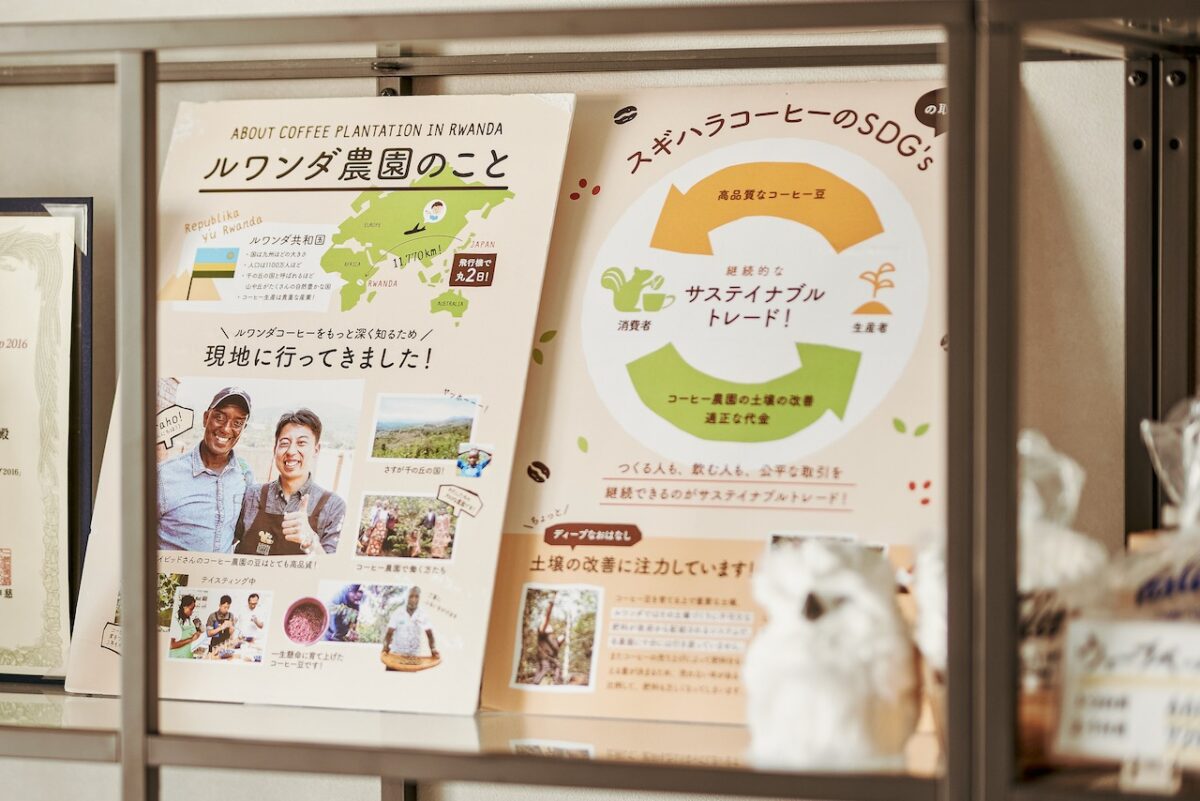
His direct import partnership with Rwandan producers is an example of this engagement. He has partnered with a doctor of agricultural sciences who represents an NPO to support soil regeneration in the Huye Mountain region, where about 8,000 producers work in the fields.
Specifically, the soil lacked organic matter that stores nutrients. So even if fertilizer is spread out, it washes away quickly. To solve this problem, Sugihara’s team quantifies the soil contents, harvest amounts and the quality of crops and shares the data with producers in an continuous experiment to increase soil fertility.
Sugihara became involved with the project soon after launching his own business. Among the results of this partnership is a 1.5-fold increase in yields over a period of five years and a rise in the number of participating producers, from 30 to 50.
While this initiative aims to improve producers’ income and living standards, it is also a significant means to achieving Sugihara’s final goal: to solve the recurring issue of inherited poverty.
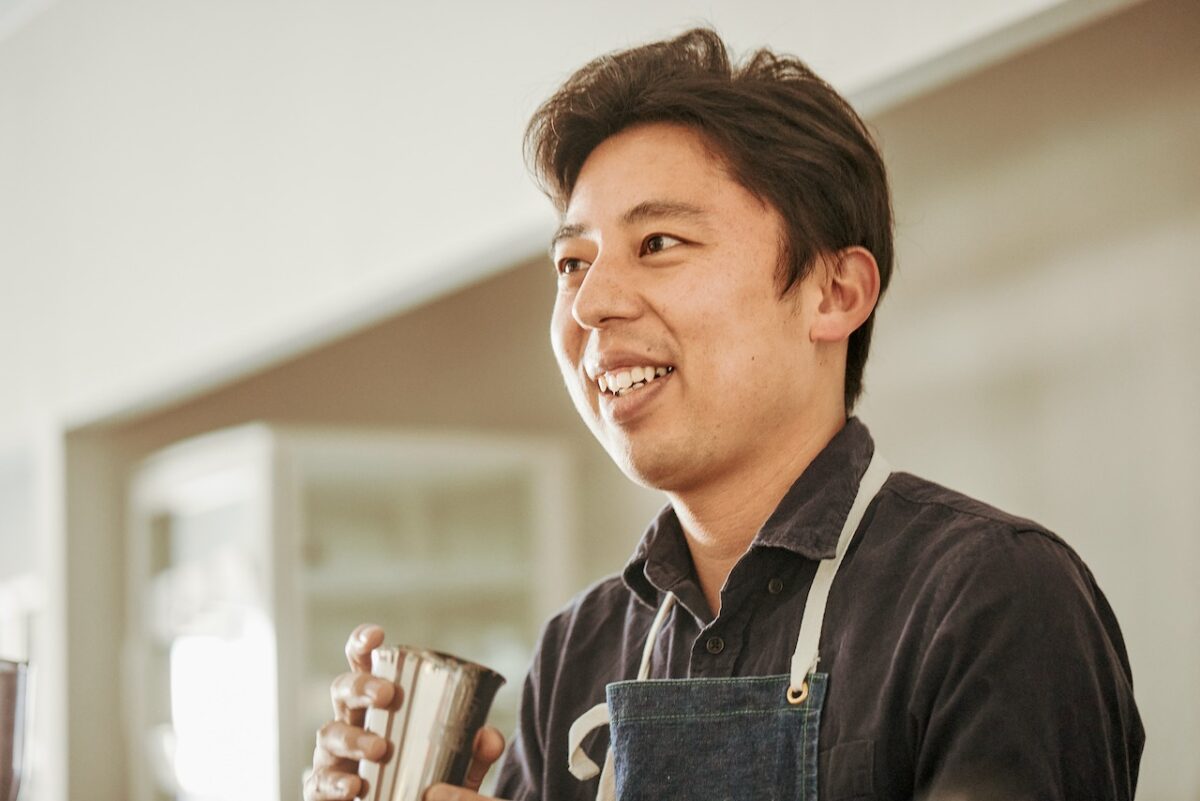
“The main cause of poverty is that children born into needy households cannot break free from a life with limited options. On the flip side, if they have options in their lives and are educated enough to make the right choice, they will be more likely to escape the cycle. If we give these people the possibility to earn more money, get health insurance, pay taxes and send their children to school, we can give them more opportunities.
Rwanda’s history is marked by a somber period of genocide. In 1994, more than one million people out of a population of over seven million were massacred within a matter of 100 days. Yet today, countless children in the country live without any knowledge about this era. In my mind, I root for these children to get a chance big enough to change the trajectory of their lives. I am so passionate about this issue probably because their circumstances overlap with my childhood.”

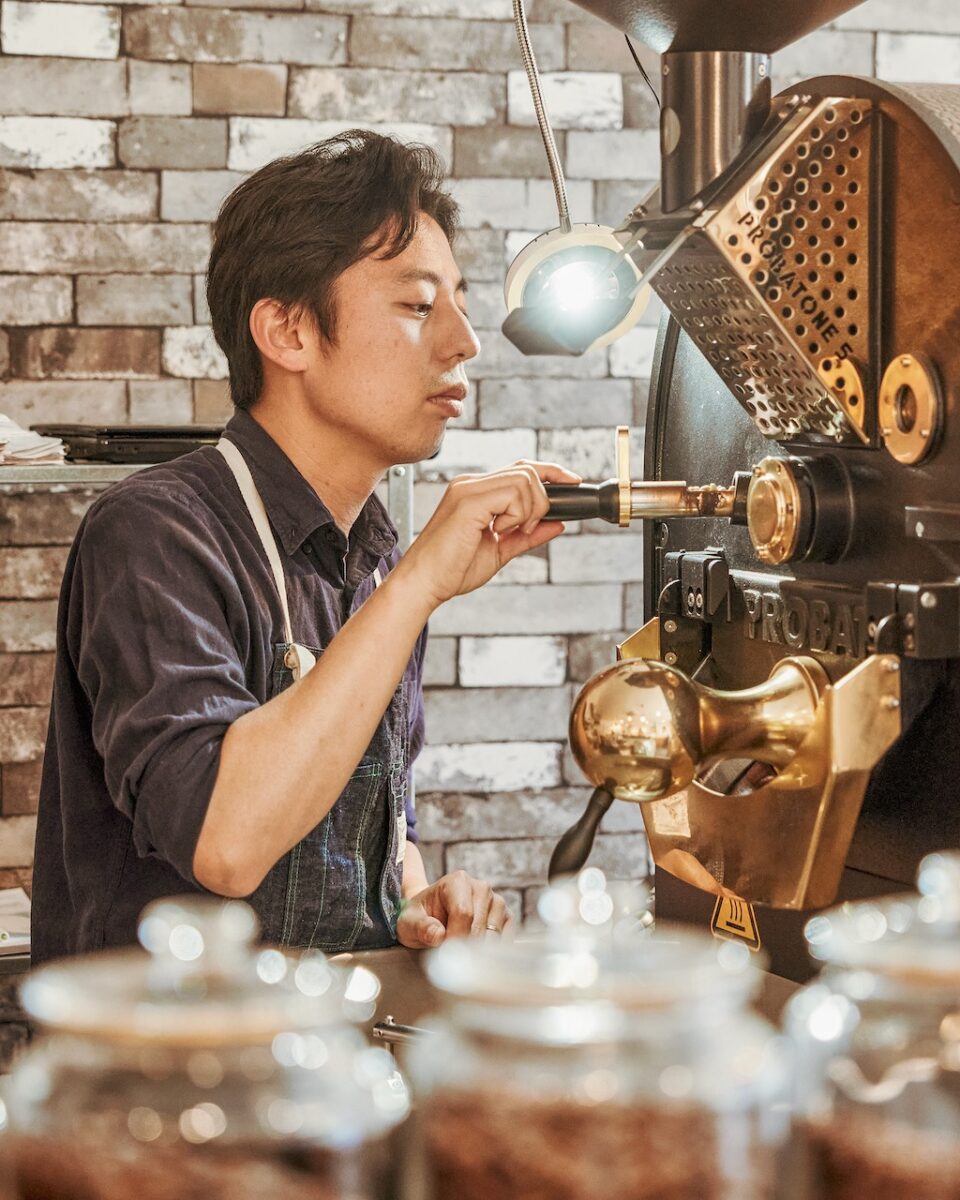
Poverty that wasn’t
Sugihara was born into an impoverished single-parent household. When he was six, his mother left his father because of his gambling addiction. The following year, she was diagnosed with terminal cancer, but miraculously survived. Nonetheless, she fell into a deep depression and could not work anymore. Sugihara and his two sisters were left to support her.
Back then, they were renting an apartment with no phone or bathroom for about 20,000 yen a month. His mother and sisters went to a public bath once every three days while Sugihara, as the only man in the house, only bathed once a week. He couldn’t afford the school supplies he wanted and couldn’t even buy a notebook without hesitation.
The three primary school children racked their brains to find a way to survive in this dire environment. Constantly looking for one-yen sales at a supermarket, they scraped by on meals that typically consisted of Jasmine rice and bean sprouts fried with salt and pepper.
“I can laugh now when I speak about those days. My sisters and I had to overcome these hardships together, so it strengthened our bond. It’s not that our relatives did not care about us, it’s just that none of them had the means to help.
In any case, it’s thanks to our mother that we grew up caring about others’ feelings and what we should do to help them. To make her life easier, we did everything we could do by ourselves. We thought that this was the legitimate role of children. So it did not strike our minds to deplore our situation or hold a grudge towards anyone.”
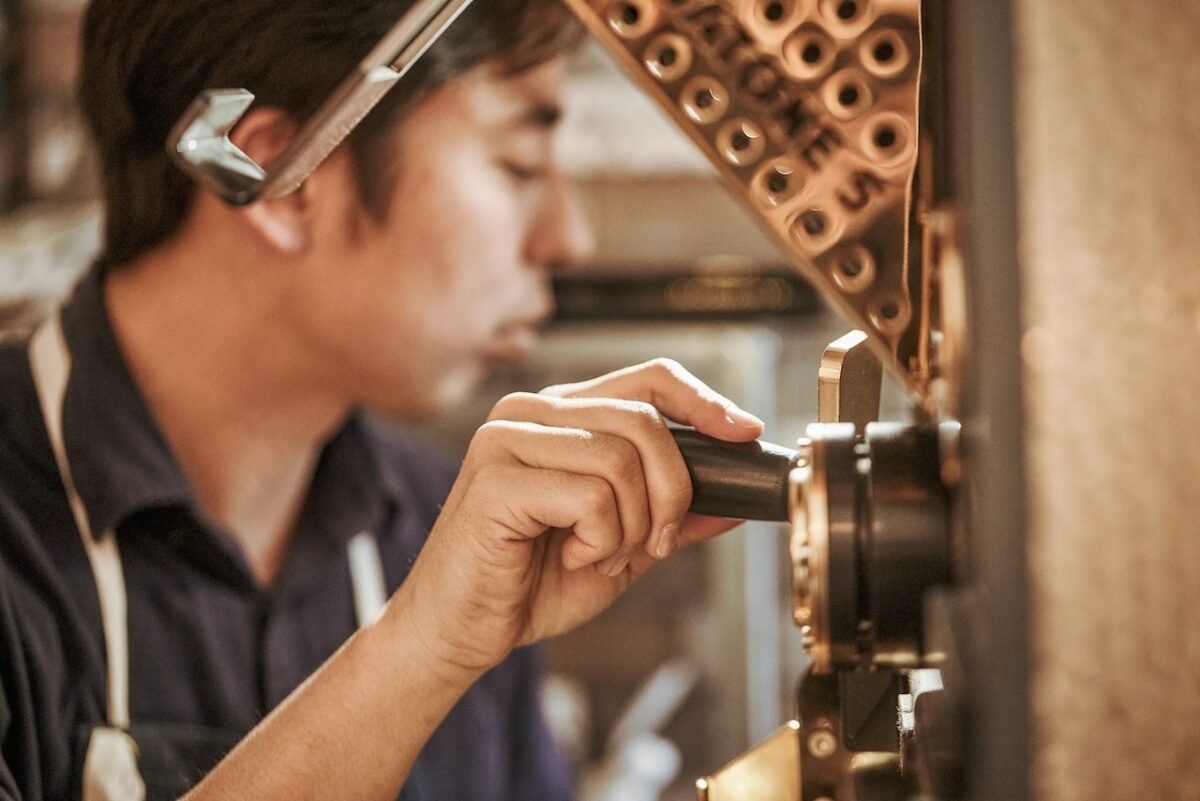
Right around the time Sugihara entered junior high school, the situation started improving at home, not only because his mother was able to work again but also because her new partner was able to cover some of their household’s expenses. Unlike his older sisters who had to stop their club activities, Sugihara could enjoy his school’s soft tennis club life to its fullest.
When he was in his last year of junior high school, Sugihara decided to get into a high school with a competitive soft tennis club. But his sports achievements were not good enough to get a recommendation letter. So he had to switch plans and prepare for a normal entrance examination. To pass this exam, though, he had to raise his deviation value by 10 points within six months.
Feeling pressured by the lack of time, he sat at his desk eight hours a day to study for this exam. He devoted himself so much to his studies that he didn’t even feel like touching a racket. In the end, his efforts were rewarded as he was accepted into a school of his choice. The sense of fulfillment and accomplishment he felt at the time made him realize that academic achievements can increase the chances of having a better future. Naturally, he decided to continue walking this path.

“I experienced discrimination and, because of my upbringing, could not do what I wanted to. I started to realize that the environment I grew up in was not normal. I did not want to raise children who would grow into adulthood without getting proper access to education and culture. So I decided to become a teacher.”

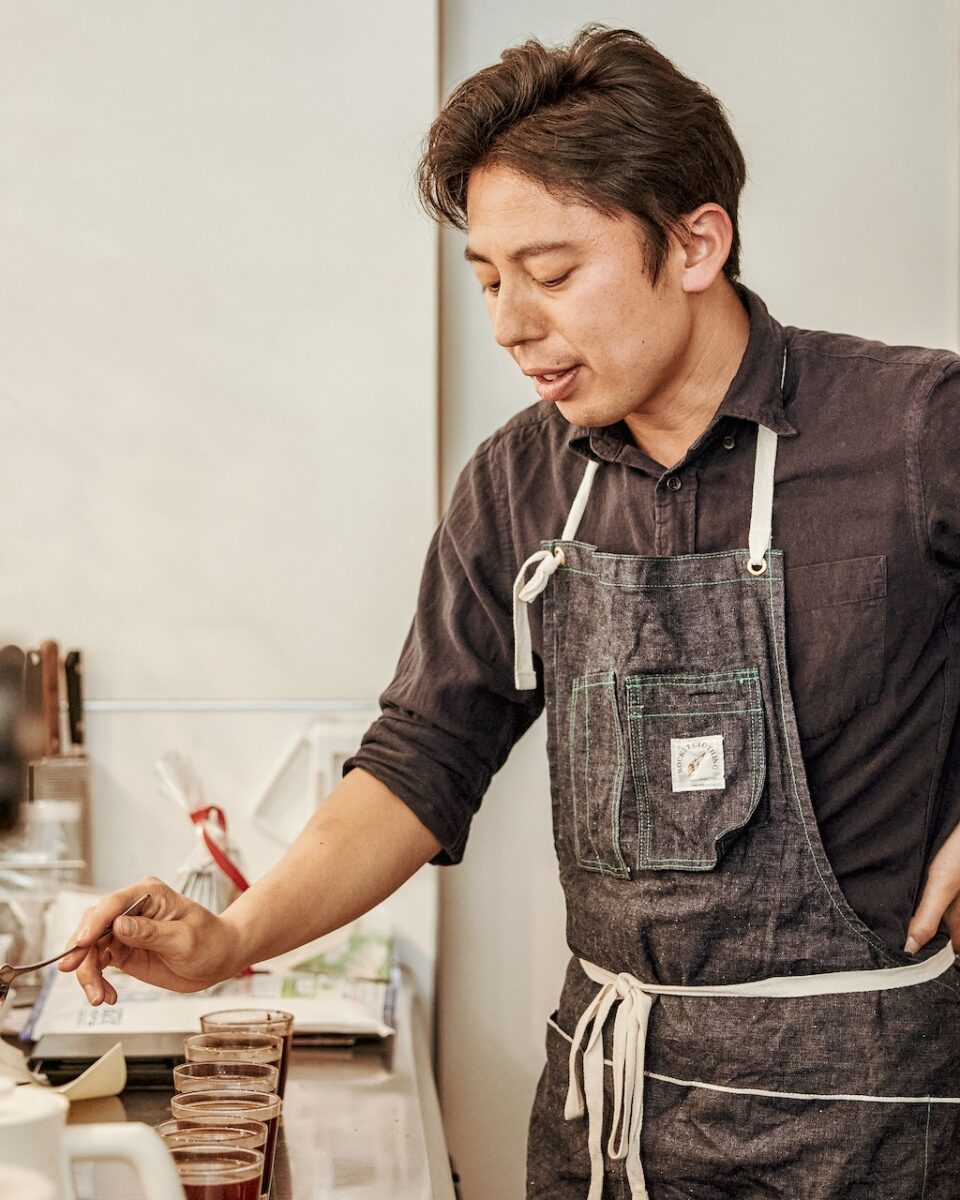
A fascination for the food industry.
To become a teacher, a college degree is a prerequisite. But Sugihara’s family did not have the means to pay for tuition. Nonetheless, his resolve was strong enough to find an alternative way in: He took out a student loan under his name to pay for all four years of his studies and worked part-time to cover living expenses.
Sugihara was walking the path that would lead him to become a teacher when he discovered a new world while working part-time in a casual French restaurant. He was struck by how good meals could taste when they were made with dedication. For someone growing up without knowing what delicious food tastes like, this encounter with pro-level cooking was eye-opening.
Sugihara became passionate about his job, spending his working hours wondering how to make tasty meals that would satisfy customers. He didn’t spare his effort on something as simple as seasoning a pasta. By stealing glances at how more experienced colleagues prepared dishes, he tried to find the perfect amount of salt whenever he cooked for restaurant staff.
“I was looking for a good taste by comparing different cooking methods. For example, I compared gratin making versus simmering–which I thought was 1.5 times tastier. I was strongly attracted to the world of cooking, probably because I had no way to evaluate deliciousness. I think the people who taught me how to cook led me on a good path.”

Eventually, as he went deeper into the world of cooking, Sugihara realized something: Many places serve delicious meals but when it comes to the coffee at the end of the meal, the quality was not what he expected. “I felt that something wasn’t right with this situation, so I started to think about mastering the art of coffee-making and creating my brand.”
To reach this goal, Sugihara started working in the spring of 2012 for HIRO COFFEE (opened in 1977), a roastery-coffee shop that operates more than 10 stores in the Osaka/Hyogo region. He was 26.
He worked there for about seven years, learning various things from branding to roasting. In February of 2019, he opened SUGIHARA COFFEE ROASTER, which doubles as a cafe. Ever since, he has managed the store with his wife, who is a pâtissier, and his staff.

“I think there is nothing compared to coffee when you talk about small differences bringing out big changes. If the temperature of the coffee server changes or if you modify the amount of hot water by only 10 ml, it will have a big influence on the final taste. Likewise, the mood of people pouring coffee also influences its taste. On the other hand, you can make people happy with just a slight adjustment. This is the magic of coffee.
Nowadays, people are so used to drinking coffee daily that it’s a difficult product to sell. Sometimes, customers are even more sensitive than us to a change in taste because they drink coffee regularly. Unlike food that you only get to enjoy from time to time, such as French food, coffee is so readily available that there are countless opportunities to compare.”


Right yardstick for better life
In February 2022, during the pandemic, Sugihara opened his second cafe, SUGIHARA COFFEE, in Kadoma. Since his first shop, ROASTER, where a roasting machine is located, has eight seats, Sugihara felt from the start that he’d need to find a wider space someday. When the time came to open his second store, he used crowdfunding and raised more than two million yen from about 200 people.
“Since we have a good relationship with Kadoma city, we could open our second shop earlier than expected. So we needed to find funds. That’s the primary reason for using crowdfunding. But the other reason is that we wanted to raise awareness about our engagement with Rwandan producers. Even if they make good coffee there, in the end, it’s no use if there are no customers who understand the value of their coffee and are willing to pay for it.
My goal is to increase the number of people who understand that fair value is based on different situations and environments, so they won’t walk away thinking that 1,000 yen is too pricey for a cup of coffee. I hope my clients get a new way to measure value.”

People are in part shaped by their environment. They won’t be open to new choices if no one gives them a chance to understand that another “normality” exists outside what they usually consider normal.
“Our family situation was at its worst when my sisters were in their teenage years. They became delinquents, ran away from home, and started living by themselves. I wonder why I didn’t follow the same path despite facing the same hardships. Perhaps because I didn’t fully realize we were poor or maybe because of my personality. For my mother, it’s unbelievable that I followed a decent life path, and she still boasts proudly today and calls it a miracle.
In any case, if you want to turn your life around, then you have to make the right decisions. Otherwise you won’t be able to break free from the cycle of misfortune. I define education as the power to look into the essence of things. It’s the faculty to probe into true nature with a variety of knowledge you acquire. Education exists to avoid taking what others are saying for granted. It’s the faculty to think and judge by yourself.
I think that the role of parents and adults, in general, is to provide children with the right yardstick, a means to make the right decisions. Since I became a father myself, when I work, I always think about what kind of world I want to leave to my children when they reach adulthood.”
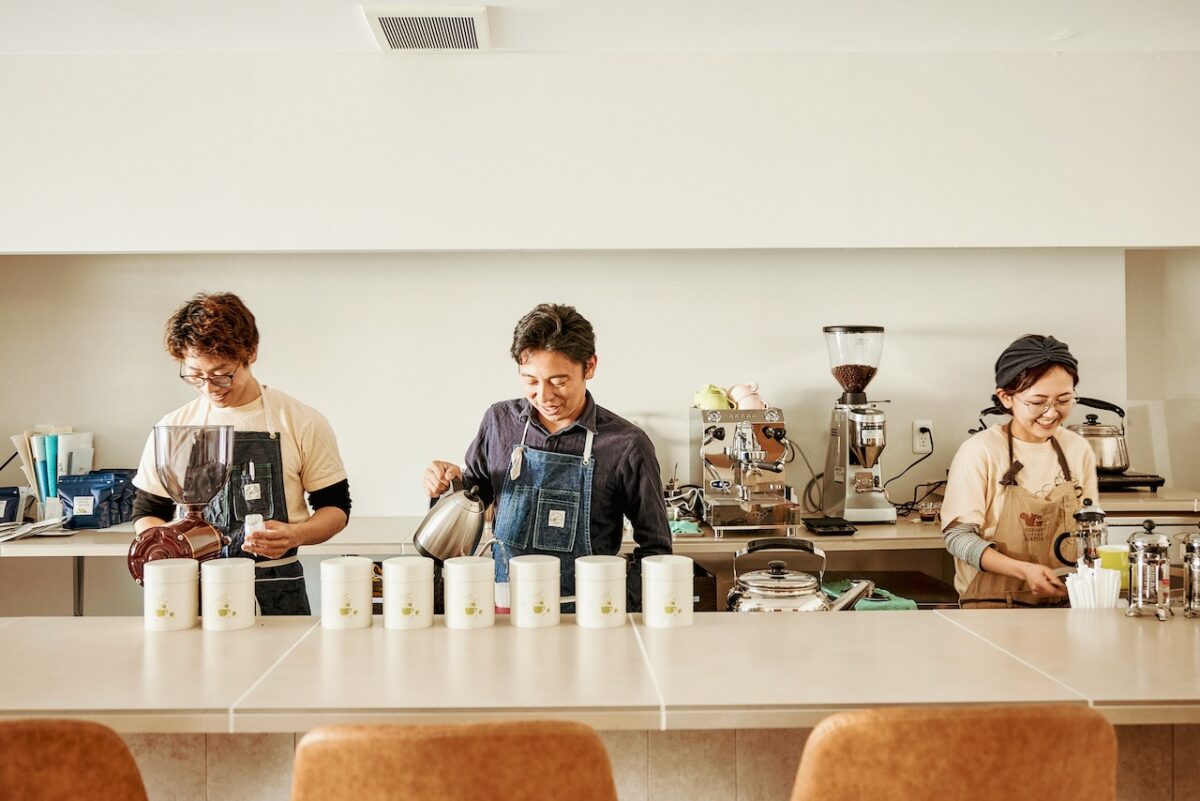
Not one to work for personal gains, Sugihara has always wanted to make someone else happier through his job. This desire, which sprouted within him when he and his sisters were looking after their sick mother while still in elementary school, was also a reference point for him to defy the adversities.
“People often tell me that I’m too honest. But I guess it’s because I learned from my father’s bad behavior. I can’t forgive any wrongdoing.”
Childhood memories can have a profound influence on people’s lives. Sugihara, now a father of three, realized his long-held dream of always being around his family by making his workplace his home as well.
“When I was a university student, I worked part-time in a coffee shop where the owner lived with his family. I admired this owner, who would wait for their children to come back from school and greeted them with a heartfelt ‘welcome back.’ I was so envious seeing him playing with his children in a park after finishing work in the evening.”
Deliciousness is not only a matter of taste. It encompasses things like the story behind the ingredients used, the environment you are in, the feelings of the people preparing what you are about to enjoy, how you feel at that moment and the atmosphere of the place you are in. What is “true deliciousness?” It is a complex mix of various factors. For Sugihara, who has deeply pondered the question, his sense of taste probably comes from pursuing his dream of an ideal household.
Originally written in Japanese by Tatsuya Nakamichi
Photos by Kenichi Aikawa
Translated by Julien Butterlin

MY FAVORITE COFFEE
When I drink coffee, I tend to analyze and evaluate it. It’s an occupational hazard. So it’s really a comforting change to go to a close friend’s shop and have coffee there with nothing on my mind. Though I say I want people to think of producers when they come to my shop, I also cherish moments like that.

Buy coffee beans from this roaster
SUGIHARA COFFEE ROASTER
SUGIHARA COFFEE
- [Open]
- 8:00-18:00 (L.O.17:30)








